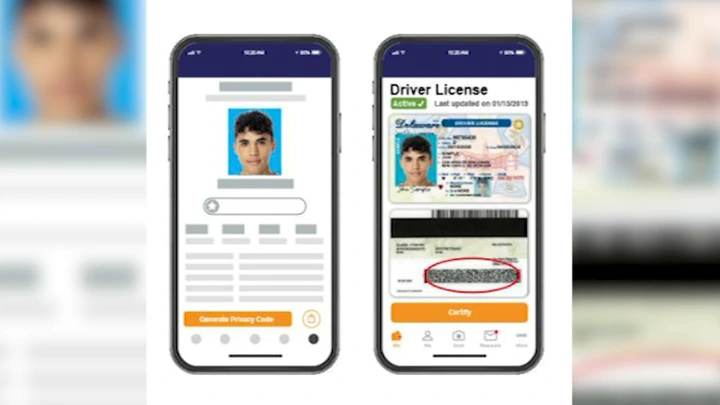As of Tuesday, a representative from the office announced that they are in the early stages of creating digital driver's licenses and state identification cards in Illinois.

View pictures in App save up to 80% data.
Beginning Jan. 1, a new state law known as HB 4592 allowed the Secretary of State's office to issue mobile ID cards and driver's licenses.
The new legislation, part of the modernization initiative led by Secretary of State Alexi Giannoulias, came into effect at the beginning of the New Year. While Giannoulias had hoped to make the licenses available by then, he had earlier indicated that they would only be issued once stringent testing protocols were in place and optimal security standards were guaranteed.
As of Tuesday, a representative from the office stated that they are in the initial stages of creating digital driver's licenses and state identification cards in Illinois.
"The initial priority of the office will be to establish top-notch security measures and conduct thorough testing to safeguard residents’ sensitive data and privacy," the office announced in a statement. "It will utilize proven strategies from states that have successfully implemented digital IDs and harness innovative technology to create the most advanced digital ID program in the country."
What might that appear to be?
How do mobile driver's licenses operate?
Officials announced that residents will have the option to choose which personal information to share using mobile IDs and driver's licenses. This will be facilitated through a secure, contactless data exchange between their device and a reader. These digital IDs can be utilized for activities such as buying alcohol, cannabis, or renting a vehicle, while keeping other personal details, such as their home address, confidential.
“Mobile driver's licenses and identification cards offer our residents a way to safeguard their personal data,” stated Sen. Michael Hastings, a co-sponsor of the bill. “There’s no justification for age verification to necessitate the sharing of sensitive information like addresses when we possess the technology for mobile cards that enable selective sharing of information.”
Moreover, showing a mobile driver's license or identification would not be considered as granting permission for a device search, as stated in a release from Illinois Senator Michael E. Hastings, who was instrumental in promoting the legislation. According to state officials, twelve states have already adopted mobile identification forms, while an additional eighteen states are in the process of implementing similar measures.
Some groups, including the ACLU, previously expressed concerns about the use of mobile identification documents, citing fears that law enforcement could search a person’s phone without proper consent. The measure in Illinois explicitly prohibit law enforcement officers from searching through a phone’s contents after viewing the mobile identification card, according to the legislation.
Hastings highlighted that an important aspect of the legislation is "the stipulation that mobile driver's licenses and identification must utilize an electronic credential system—like a barcode system—to ensure that individuals are not obligated to give up their mobile device when requested."
Is it possible that mobile driver's licenses will take the place of traditional physical ones?
Giannoulias stated that mobile driver's licenses would not serve as substitutes for traditional physical licenses, but rather function as a supplementary option.
"We are thrilled to have arrived at a stage where we can roll out mobile IDs in a way that prioritizes the safety of our roads and safeguards the privacy of Illinois residents, while also supplying law enforcement, businesses, and healthcare providers—who depend on physical driver's licenses and identification cards—with the necessary information," Giannoulias stated in a press release.
Is it possible to use a mobile driver's license at the airport?
According to officials with the TSA, the agency does accept mobile identification at airports, but still encourages fliers to carry physical ID cards as well.
Regarding REAL ID-compliant cards, mobile identification can be utilized in such scenarios; however, officials still recommend that residents carry physical copies of their identification.
The TSA does accept mobile ID's in many situations, but it notes that "if a digital ID cannot be verified at the TSA security checkpoint, a passenger must use an acceptable physical identity document."
The TSA also stated that the Real ID Act applies to state-issued mobile driver's licenses and ID cards.